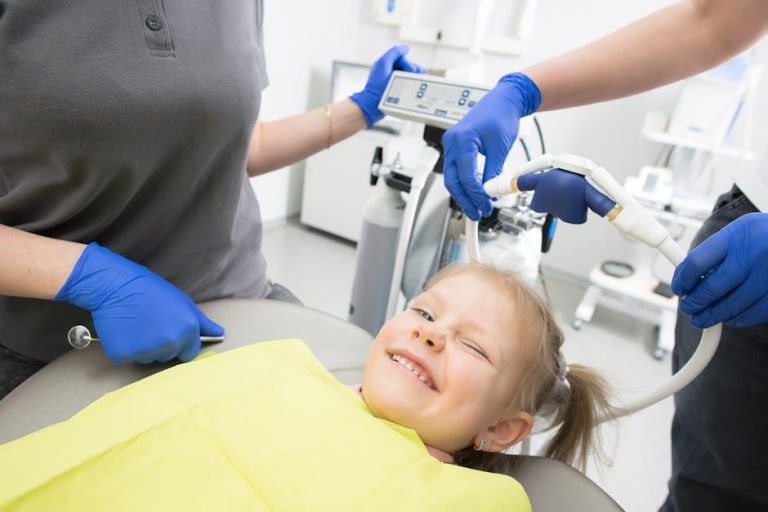1 in 3 Kids Has Dental Problems, Poll Finds – U.S. News & World Report
Dental health is a crucial component of overall well-being, especially in children. Recent findings reported by U.S. News & World Report reveal an alarming fact: 1 in 3 kids in the United States suffers from dental problems. This statistic shines a spotlight on pediatric oral health and urges parents, caregivers, and health professionals to step up preventive care.
Understanding the Scope: How Widespread Are Children’s Dental Problems?
Dental issues among children are not just a minor concern; they can affect a child’s nutrition, growth, and self-confidence. The poll conducted by U.S. News & World Report highlights several common dental problems:
- Tooth decay (cavities) – The most prevalent chronic childhood disease.
- Gum diseases – Early signs of gingivitis in kids.
- Tooth sensitivity and pain – Causing discomfort during eating and drinking.
- Misalignment and orthodontic issues – Affecting bite and jaw development.
Key Statistics From the Poll
| Dental Problem | Prevalence Among Kids |
|---|---|
| Tooth Decay (Cavities) | 28% of children |
| Gum Disease Symptoms | 12% of children |
| Tooth Pain or Sensitivity | 22% of children |
| Misaligned Teeth/Orthodontic Issues | 15% of children |
Why Are So Many Children Facing Dental Problems?
Multiple factors contribute to the high prevalence of dental issues among kids. Understanding these causes can help parents and communities put preventive measures in place.
Common Causes of Pediatric Dental Issues
- Poor Dental Hygiene: Infrequent brushing and flossing lead to plaque buildup and cavities.
- Unhealthy Diet: Consumption of sugary snacks and drinks promotes tooth decay.
- Lack of Access to Dental Care: Financial constraints or geographical barriers can delay dentistry visits.
- Limited Parental Awareness: Not recognizing early signs or importance of oral care routines.
- Genetics: Some kids are more prone to dental problems due to hereditary factors.
Practical Tips for Parents: Promoting Healthy Smiles at Home
Parents play a pivotal role in ensuring their children maintain good oral health. Here are effective strategies to reduce the risk of dental problems:
Daily Dental Care Routine
- Brush teeth twice a day with fluoride toothpaste.
- Teach children proper brushing techniques, including brushing for at least two minutes.
- Encourage flossing daily to remove food particles between teeth.
- Use mouthwash suitable for children when recommended by a dentist.
Healthy Eating Habits
- Limit sugary snacks, candy, and sodas.
- Offer water instead of sugary drinks to hydrate.
- Include calcium-rich foods like milk, cheese, and yogurt.
- Encourage crunchy fruits and vegetables to help clean teeth naturally.
Regular Dental Checkups
- Start dental visits by a child’s first birthday or after their first tooth appears.
- Schedule routine checkups every six months.
- Ask dentists about sealants and fluoride treatments to protect teeth.
- Address dental issues promptly to avoid complications.
Case Study: The Impact of Early Intervention on Children’s Dental Health
Consider the example of the Johnson family from Ohio. Their 7-year-old son, Liam, experienced recurring toothaches and was diagnosed with multiple cavities. After working with a pediatric dentist and establishing daily dental hygiene at home, Liam’s dental health improved significantly within six months:
| Before Intervention | After 6 Months of Dental Care |
|---|---|
| Three cavities requiring fillings | Zero new cavities, existing treated |
| Complaints of tooth pain | Pain-free, improved comfort while eating |
| Irregular brushing habits | Consistent twice daily brushing |
Liam’s parents emphasize that education and simple lifestyle changes made all the difference in preventing further dental problems and promoting lasting oral health.
The Benefits of Good Dental Health in Children
Investing time and care into children’s dental health provides several long-term benefits, including:
- Improved overall health: Oral health is linked to systemic health conditions, such as heart and respiratory diseases.
- Better nutrition: Healthy teeth allow kids to eat a balanced diet comfortably.
- Enhanced self-esteem: A bright smile boosts confidence and social interactions.
- Reduced future dental costs: Preventing problems early avoids expensive treatments later.
Conclusion: Prioritizing Pediatric Dental Care Is Essential
The revealing poll from U.S. News & World Report that 1 in 3 kids suffers from dental problems is a wake-up call for families and healthcare providers alike. Dental issues can be painful, disruptive, and affect a child’s life beyond just oral health. Through regular dental visits, adopting healthy habits, and raising awareness, we can reverse this concerning trend and give children the healthy, bright smiles they deserve.
Parents, educators, and communities must join hands to promote early prevention and diligent care. Remember, a strong foundation in dental health during childhood sets the stage for a lifetime of well-being.


